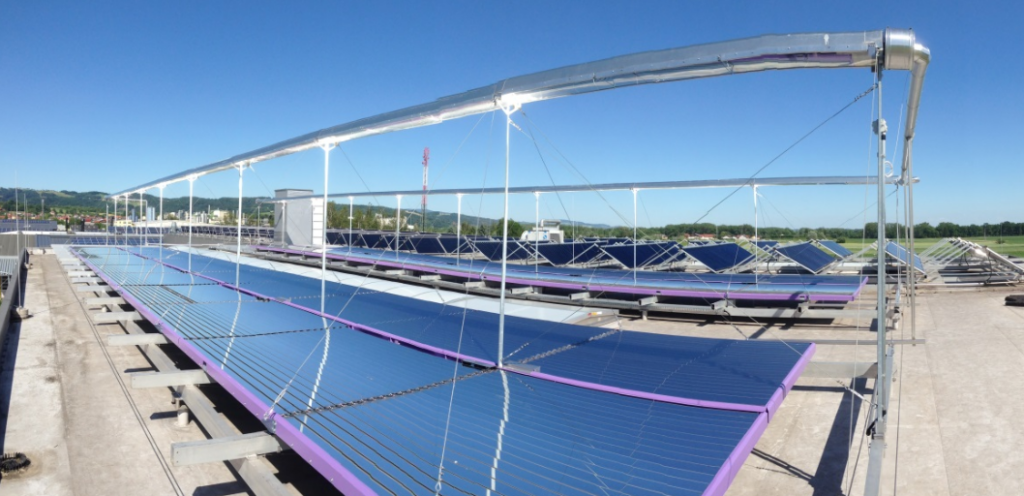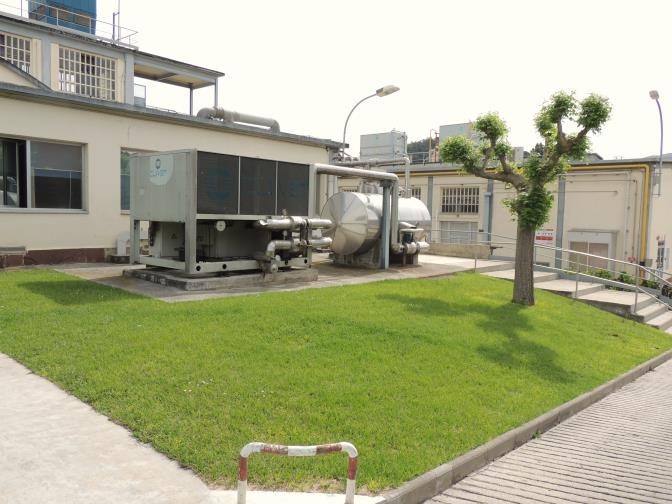Article by Alex Grande, from IDP
Powering of industrial processes, if based on renewable technologies, may offer greater potential for CO2 emission reductions. Solar thermal energy is a promising sector which has been widely studied during the last two decades, becoming a candidate of the highest potential among renewable energy technologies, especially for industrial heating and cooling processes, because some technologies, such as heat pumps and mechanical vapour recompression, are particularly effective in hybrid systems.
The use of direct solar heat in industry is often hampered by barriers like lack of nearby available surface and seasonal imbalances. However, recent solar steam developments applied in the cooling demand services is growing worldwide with a wider variety of use, mainly within the industry. Some technologies, such as heat pumps are particularly effective. The two demonstration sites selected to tests Hycool system (Bo De Debó and Givaudan) are industries where custom-designed packages will be built, installed and tested.
Bo De Debó is a specialised industry in preparing precooked fresh dishes based on meat, fish and vegetable products, for being frozen, vacuum-packed or canned, and then sealed. In this site, Hycool will pre-cool the water in a buffer tank where it should be cooled down with other chiller in order to get 3-5ºC needed for the production of “gazpacho” (a kind of vegetables juice) and food washing processes. The residual heat from the system will be used to produce hot water for cleaning operations.

Givaudan is the global leader in the creation of flavours and fragrances. In close collaboration with food, beverage, consumer product and fragrance partners, Givaudan develops tastes and scents that delight consumers the world over. The Hycool system will provide the cold water needed to refrigerate the glycol stored in a buffer tank before it’s pumped to the vacuum pump water rings. The residual heat from the system will be used to produce steam to be injected in the factory net.

In summary, the solar thermal energy provided by the Hycool System will allow our pilot sites:
- To reduce their productions costs by using a free source of energy
- To increase their system efficiency by using the residual thermal energy for producing heat water or steam
- To reduce their global CO2 emissions by reducing the use of fossil fuels for producing that heat
